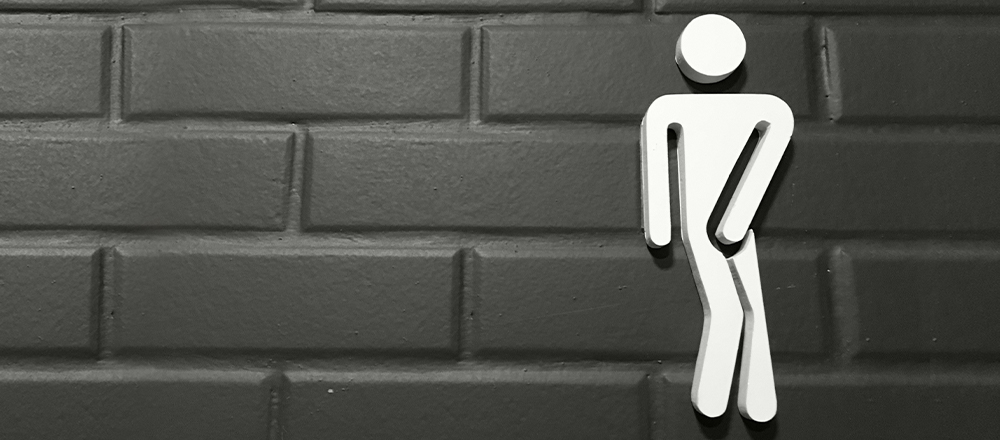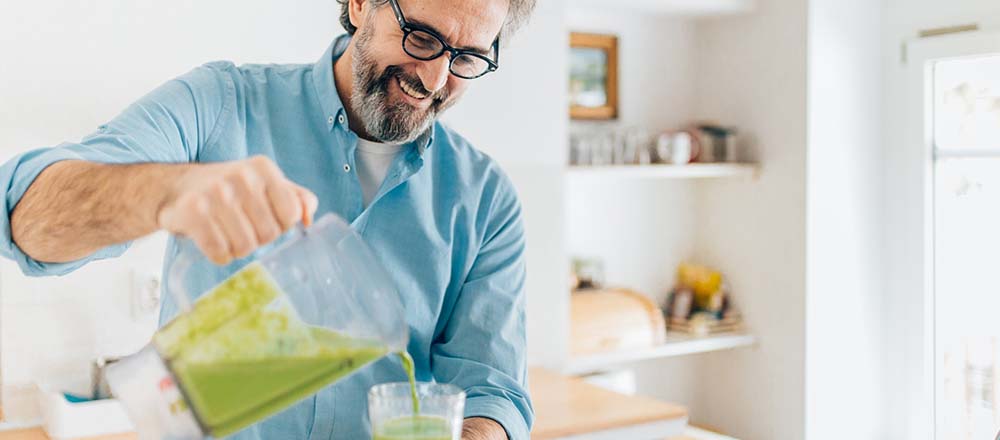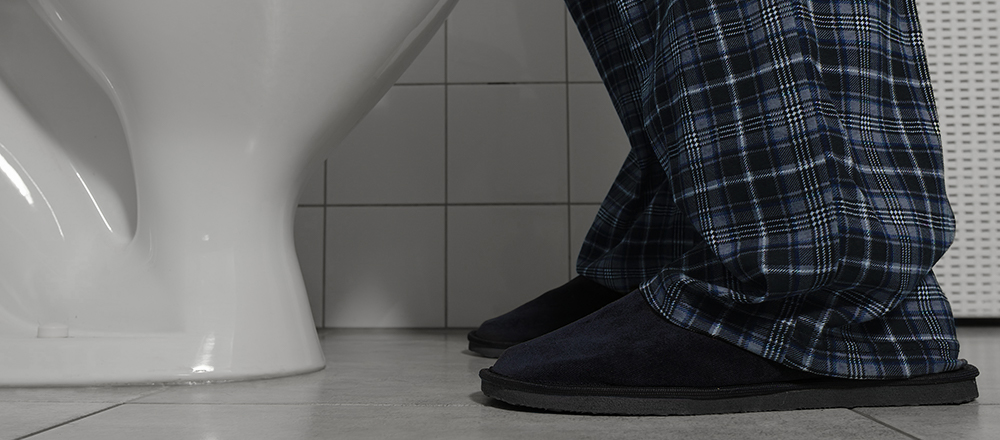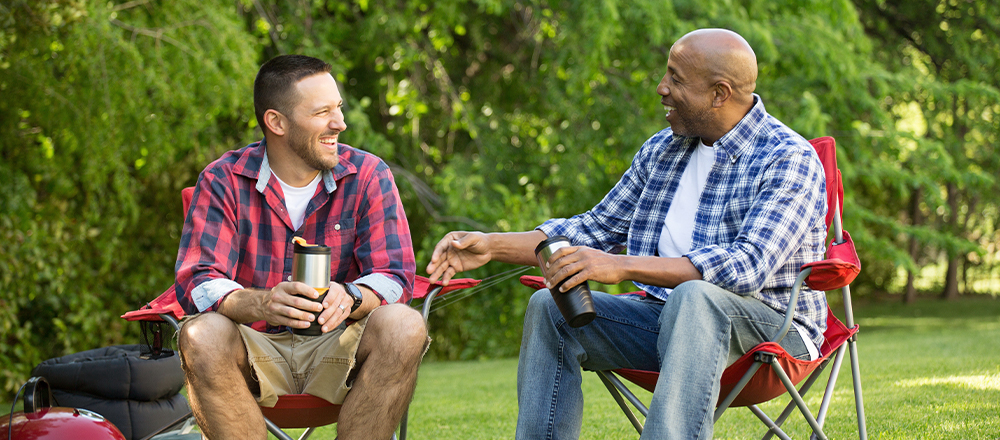The Man's Guide to Urinary Incontinence
June 8, 2021By: Gerald Park
Categories: Live Healthy, Men's Health, Prevention

Urinary incontinence can impact your daily life and be embarrassing. If you’re dealing with the loss of bladder control, you should know you are not alone. It affects between 5%-15% of men over the age of 60. Fortunately, urinary incontinence is usually treatable.
4 Types of Urinary Incontinence
- Mixed – You experience more than one of the below
- Overflow – Urine leaks in small amounts, even when you do not feel the need to use the bathroom; your bladder does not empty completely
- Stress – Increased pressure on your bladder caused by lifting something heavy, sneezing or coughing cause urine to leak
- Urge – The need to urinate is so strong you have no control over it; urge incontinence is the most common type of male incontinence
Causes of Urinary Incontinence in Men
“Urinary incontinence is not a disease in itself; it is a symptom of another condition,” explained Gerald Y. Park, MD, a urologist with Kansas City Urology Care on the North Kansas City Hospital campus. “It may be caused by your lifestyle, daily habits or underlying conditions you may not know about.”
- Age. Men are more likely to experience urinary incontinence as they age. One main reason is the bladder muscles lose some of their ability to hold urine. This loss of bladder muscle strength can cause involuntary bladder contractions. The urethra also loses strength over time.
- Lifestyle. Men who are overweight or less physically active may be at an increased risk for urinary incontinence. The decrease of overall muscle strength can make symptoms worse. Extra belly fat can put more pressure on your bladder.
- Medical conditions. Incontinence in men has been linked to an enlarged prostate gland (benign prostatic hyperplasia). It also can be associated with prostate cancer; however, it is more likely to be a side effect of prostate cancer treatment.
Diagnosis and Treatment Options for UI
“A urologist assesses your medical history and symptoms and may order diagnostic tests to help determine the cause,” Dr. Park said. “Your treatment may include medications, a corrective procedure, pelvic floor therapy or the use of male incontinence devices that collect urine.”
Lifestyle changes may also help reduce your symptoms.
- Be prepared
- Scout out the nearest restrooms when you are out and about
- Consider using incontinence pads and disposable undergarments, which can stop leaks, block odors and protect your skin from irritation; you can wear them under clothing without anyone noticing
- Get healthier
- Reduce the amount of caffeine and alcohol you consume; caffeine, soda and other carbonated drinks can irritate the bladder, and alcohol acts as a diuretic, which can increase your need to urinate
- Stop smoking; smoking can irritate your bladder and make symptoms worse
- Eat a healthy diet and get regular exercise to help avoid constipation, a gastrointestinal issue that can increase your risk for UI
- Strengthen your pelvic floor
- Practice pelvic floor muscle strengthening exercises, called Kegels, to help strengthen and tighten the muscles in your pelvis and urinary tract
- Tighten your pelvic floor muscles
- Hold for 3 seconds
- Relax for 3 seconds
- Repeat a few times, and do several sets each day
- Train your bladder
- When you feel the urge to urinate, see if you can delay going to the bathroom, which can help strengthen your bladder and urinary tract
- Try scheduling trips to the bathroom to avoid sudden urges
- When you use the bathroom, try to urinate more than once to decrease the amount of urine in your bladder; keeping track of when you urinate is a good way to measure your success
- Watch your fluid intake
- Drink smaller amounts of fluids throughout the day instead of large amounts at one time to help control your urges to urinate
- Don’t restrict fluid intake because that could lead to dehydration and other related issues, such as bladder infections
- Avoid drinking large amounts of liquid in the hours before going to bed
Our urologists treat a full range of urinary tract issues and conditions affecting male reproductive organs. Read more about our urology services, and find a urologist.



